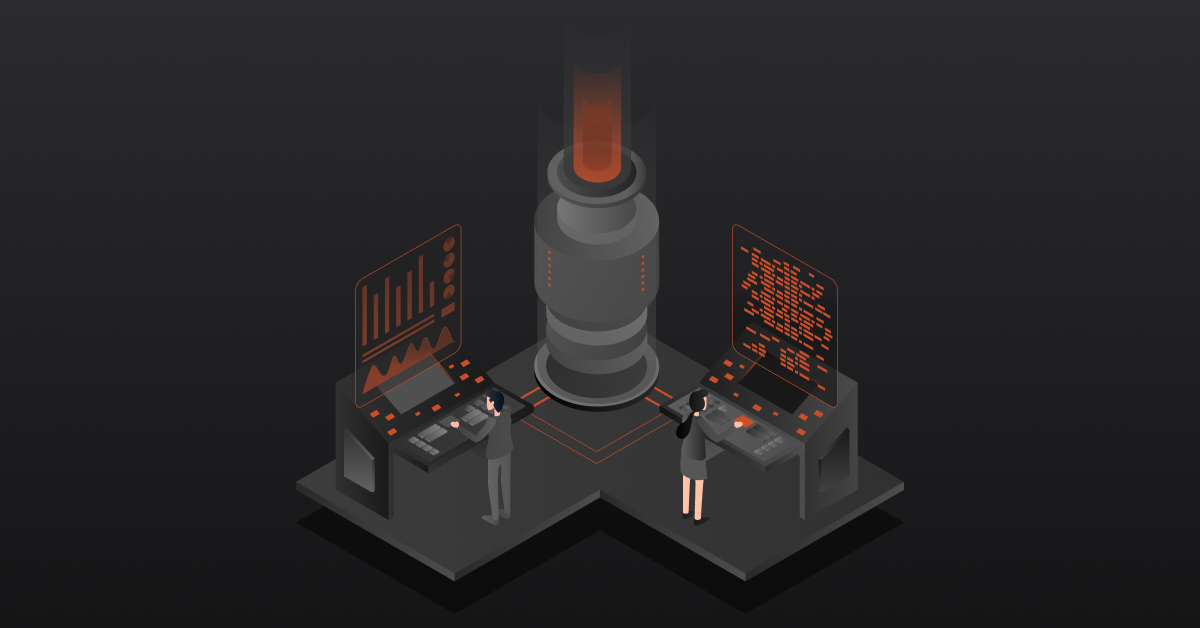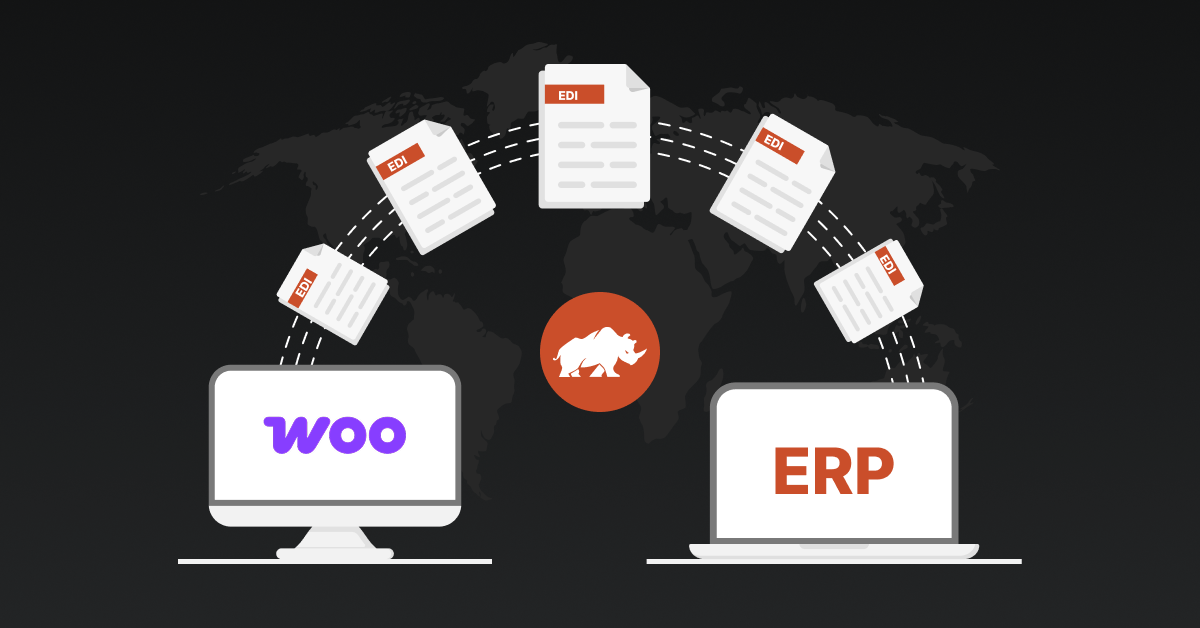ERP (Enterprise Resource Planning) integration solutions for the manufacturing industry help companies connect different parts of their business processes, ensuring everything works smoothly. This makes it easier to make good decisions, grow, and adapt to changes.
Benefits Of ERP Integration Platform For The Manufacturing Industry
Many manufacturing ERP systems still rely on human resources or manual data entry, leading to errors, slow decision-making, and a host of problems like poor inventory management, excess stock, production delays, and lost sales.
A manufacturing ERP integrated business acts as a central nervous system for your manufacturing operations, automating tasks, streamlining planning and forecasting, and improving overall efficiency.
By anticipating customer demand rather than reacting to it, manufacturing ERP integration reduces lead times and helps you stay ahead of the curve.
An ERP integrated manufacturing consolidates data from all departments, eliminating duplicate data entry and providing real-time insights across the organization. With everyone on the same page, teams can make informed decisions faster, increasing your company’s agility and responsiveness to market shifts.
By connecting ERP to customer relationship management (CRM) tools, sales teams can access up-to-date product and pricing information. This helps them serve customers better and ensure improved customer management. Integrating ERP with quality control systems can enhance product consistency and reduce waste.
Integrating omnichannel business systems with ERP connects all sales channels—online, offline, and mobile—into a unified platform. This integration ensures consistent customer experiences, real-time inventory updates, and streamlined order processing across all channels, enhancing overall efficiency and customer satisfaction.
With manufacturing ERP integrations, you’ll transform your manufacturing processes, drive efficiency, and gain a competitive edge in the market.
Also read: 9 Top Enterprise Integration Platforms [+Pros & Cons]
Systems That Can Be Integrated With ERP for Manufacturers
Manufacturers can improve product quality, real-time visibility, and business intelligence through their ERP system. Here are some key software applications that can be integrated with ERP solutions in the daily production activities of the manufacturing sector.
- Manufacturing Execution System (MES): MES-ERP integration (MES ERP Manufacturing Integration) tracks and controls production from raw materials to finished products. Integrating MES with ERP helps keep schedules on time and improves production tracking.
- Warehouse Management Software (WMS): WMS-ERP integration (WMS ERP Manufacturing Integration) improves production planning, order fulfillment and inventory tracking. Integrating WMS with ERP improves inventory management and aligns production schedules with procurement.
- Product Lifecycle Management (PLM): PLM-ERP integration (PLM ERP Manufacturing Integration) synchronizes unique identifiers, BOM structures, and attributes, facilitating accurate data management and collaborative design changes.
- Material Resources planning (MRP): MRP-ERP integration (Material Resources planning also called Materials Requirement Planning) ensures efficient materials management by aligning materials requirements with production schedules. This integration enhances inventory control, reduces waste, and supports just-in-time manufacturing for improved overall operational efficiency.
- Internet Of Things (IoT): IoT-ERP- integration (IoT ERP Manufacturing Integration) provides businesses with the latest information on operations, supply chain management, and customer behavior.
- Barcode Technology: Enhances inventory management with accurate scanning. Integrating barcode systems with ERP reduces errors and improves tracking.
- eCommerce Solutions: ERP eCommerce integration (eCommerce ERP Manufacturing Integration) supports online sales and customer service. Integrating e-commerce with ERP provides real-time updates or real time visibility and expands sales.
- Fleet Management Software: FMS-ERP integration (FMS ERP Manufacturing Integration) manages vehicle-related tasks like fuel costs, maintenance, and GPS tracking. Integrating it with ERP makes managing fleets easier and more cost-effective.
- Shipment And Tracking System: Integrating shipment and tracking systems with ERP enhances order fulfillment and delivery tracking. This integration provides real-time shipment status updates, streamlines logistics management, and significantly improves customer service by ensuring timely and accurate deliveries.
- Tax Software: Integrating tax software with ERP automates tax calculations and ensures regulatory compliance. This integration minimizes errors, simplifies tax reporting, and efficiently manages tax obligations across various jurisdictions, ensuring accurate and timely financial operations.
- Blockchain Technology: Ensures secure and transparent data sharing in the supply chain. Integrating blockchain with ERP keeps records tamper-proof and trustworthy.
- Financial Software: ERP integration with financial software simplifies financial management including cost and profit tracking across the business, ensuring smoother and more efficient operations.
These integrations help manufacturers get the most out of their ERP systems, making operations smoother and more efficient.
Challenges In Implementing Manufacturing ERP Integration System
Implementing ERP systems in manufacturing comes with challenges. Their complexity can be overwhelming, so careful planning and risk management are essential.
Data management poses another significant hurdle. Most manufacturers utilize a variety of systems and applications to track expenses, manage projects, and monitor production and staffing. Integrating these disparate systems can lead to data inconsistencies, resulting in errors and operational slowdowns.
An effective ERP integrated technology platform solution for manufacturing must be capable of seamlessly handling large volumes of data from multiple sources, ensuring accuracy and reliability. It must be an integrated manufacturing scalable ERP.
Also read: ERP Data Integration With Other Systems
Steps To Successful ERP Integration In Manufacturing
To successfully integrate ERP with other systems in manufacturing, follow these steps:
- First, make a plan. Figure out which systems (example: MES-PLM-ERP manufacturing integration) need to connect and why.
- Get everyone involved – from factory workers to managers. They need to understand how the fully integrated manufacturing ERP will help.
- Clean up your data. Make sure information in all systems is correct and up to date. (Remember: Garbage in is Garbage Out)
- Choose the right integration manufacturing ERP software to connect your systems.
- Test everything carefully before going live.
- Train your team (through the vendor) well so they know how to use the new connected systems.
- Finally, keep checking that everything is working right and fix any issues quickly.
- Remember, manufacturing ERP integrations takes time, so be patient and celebrate small wins along the way.
API Integration And Data Standardization In Manufacturing ERP
In today’s factories, it’s important for different computer systems to talk to each other easily. This is where APIs come in. API stands for Application Programming Interface. Think of APIs as special bridges that let different programs share information quickly. For example, APIs help machines on the factory floor send data to the main computer system. To know more about APIs, check this 2-minute video here.
Another important thing is making sure all the data looks the same across different systems. This is called Data Standardization. It’s like making sure everyone in a school uses the same way to write dates or measure things. When all the data is in the same format, it’s easier to understand and use. This helps factory managers make better decisions and keeps everything running smoothly.
By using APIs and keeping data consistent, manufacturers can make their computer systems work together better. This saves time, reduces mistakes, and helps the factory work more efficiently.
Manufacturing ERP Integration: Key Factors And Considerations
1. System Compatibility Analysis
– Assessing current systems and integration potential
2. Custom Integration Development
– Design and implementation of integration interfaces
– Data mapping and transformation logic
3. Data Migration And Cleansing
– Extracting, cleaning, and validating data
4. Cloud Infrastructure
– Cloud resources for integration layers
– Scalable computing power and storage
– Cloud-based security and networking services
5. Software Licensing
– Integration platform and connector fees
– Additional ERP modules for integration
6. Staff Training
– Training on new integrated processes
– Technical training for IT staff
7. Consulting And Implementation Services
– Technical implementation support
8. Ongoing Maintenance And Support
– Regular updates and issue resolution
– Scaling integrations as needs evolve
9. Downtime And Productivity Considerations
– Potential disruptions during implementation
10. Quality Assurance And Testing
– Integration testing and performance validation
11. Compliance And Security Measures
– Meeting industry regulations in integrated systems
12. Scalability and Futureproofing
– Designing for business growth and technological changes
Cloud-Based vs. On-Premises ERP Integration For Manufacturers
When choosing an ERP integration solution for your manufacturing company, consider both initial and ongoing costs. There are two main options: On-Premises and Cloud-Based integrations.
- On-Premises Integration: On-premises integrations can be customized to fit your specific needs, but this can be expensive and time-consuming. They also require a large upfront investment in hardware and ongoing costs for updates and security.
- Cloud-Based Integration: Cloud-based integration works as a service you subscribe to, with lower upfront costs and minimal hardware needs. Cloud-based integration offers a range of advantages, including scalability, cost-effectiveness, flexibility, improved collaboration, enhanced security, real-time data access, reduced maintenance, disaster recovery, ease of implementation, and global accessibility.
When choosing between cloud-based and on-premises ERP integration, manufacturers should think about more than just customization and budget.
Manufacturers need to consider data security, how easy it is to connect systems, performance, disaster recovery, support from the vendor, future growth, total costs, user access, customization options, and environmental impact.
By looking at all these factors, manufacturers can pick the best solution that meets their needs now and in the future.
Also read: ERP Integration With eCommerce Explained – 2024
Choosing The Right ERP Integration Solution For Manufacturers: Custom, Out-Of-The-Box, and Low-Code Options
Manufacturers can choose between custom-built ERP integration solutions, out-of-the-box integration software, and low-code integration solutions.
- Custom integration solutions are tailored to fit a company’s specific needs but take longer to set up and cost more.
- Out-of-the-box integration software is ready-made, quicker to implement, and usually cheaper, but might not meet all unique business needs.
- Low-code integration solutions balance cost and flexibility, allowing easy adjustments.
Low-code integration solutions offer a middle ground. They allow for some customization with minimal coding, providing flexibility without the high cost and long setup time of custom solutions. This approach lets manufacturers quickly adjust and expand their ERP integrations as needed.
When choosing an ERP integration solution, manufacturers should consider their specific needs, budget, and the provider’s experience. Finding the right balance between custom, low-code, and out-of-the-box integration solutions is key for smooth operations and business success.
Use Case: Successful ERP Integrations In Manufacturing
Successful ERP integration in manufacturing usually involves creating a project team, identifying workflow needs, and researching the right software providers.
Here is an illustrative use case of an ERP-MES integration:
XYZ Electronics, a leading manufacturer of circuit boards, faced operational inefficiencies due to disconnected MES and ERP systems, causing issues in production scheduling, inventory management, and real-time tracking. To address these challenges, they undertook a comprehensive MES-ERP integration project.
This involved real-time data synchronization, enhanced production scheduling, improved inventory management, quality control, and unified reporting. Key steps included using ERP for detailed schedules and MES for immediate feedback, real-time tracking of materials with automated alerts, and integrating quality data for better management and issue resolution.
The integration resulted in a 15% reduction in machine downtime, a 20% decrease in stockouts and overstock issues, and a 10% reduction in defect rates.
Unified reporting and predictive analytics enabled better decision-making, while significant cost savings were achieved through optimized resource utilization.
This illustrative use case demonstrates how MES-ERP integration can lead to substantial operational improvements and drive excellence in manufacturing.
Know more about ERP-MES Integration.
Embracing ERP Integration For Future Success
Using ERP integration helps manufacturers connect all parts of their business, making things run smoothly and efficiently. This improves data accuracy, helps with better decision-making, and saves time and money. MES-PLM-ERP manufacturing integration can manage inventory better, ensure quality, and meet regulations. It also reduces costly errors and delays. Investing in ERP integration is a smart move for manufacturers who want to grow and stay competitive in the market.
When choosing an ERP integration system for your business operations, it’s crucial to select a provider that offers industry-specific features tailored to your unique needs. Thoroughly vet potential vendors by checking references and ensuring their solutions align with your long-term goals.
DCKAP helps manufacturers and distributors integrate their ERP systems with other business applications. Our low-code, cloud-based DCKAP Integrator streamlines operations, automates processes, and provides actionable insights, all without needing a lot of custom changes.
Contact us to learn more about our tailored integration platform.
Talk to our integration experts to match your requirements to the right solution for you.
Contents




